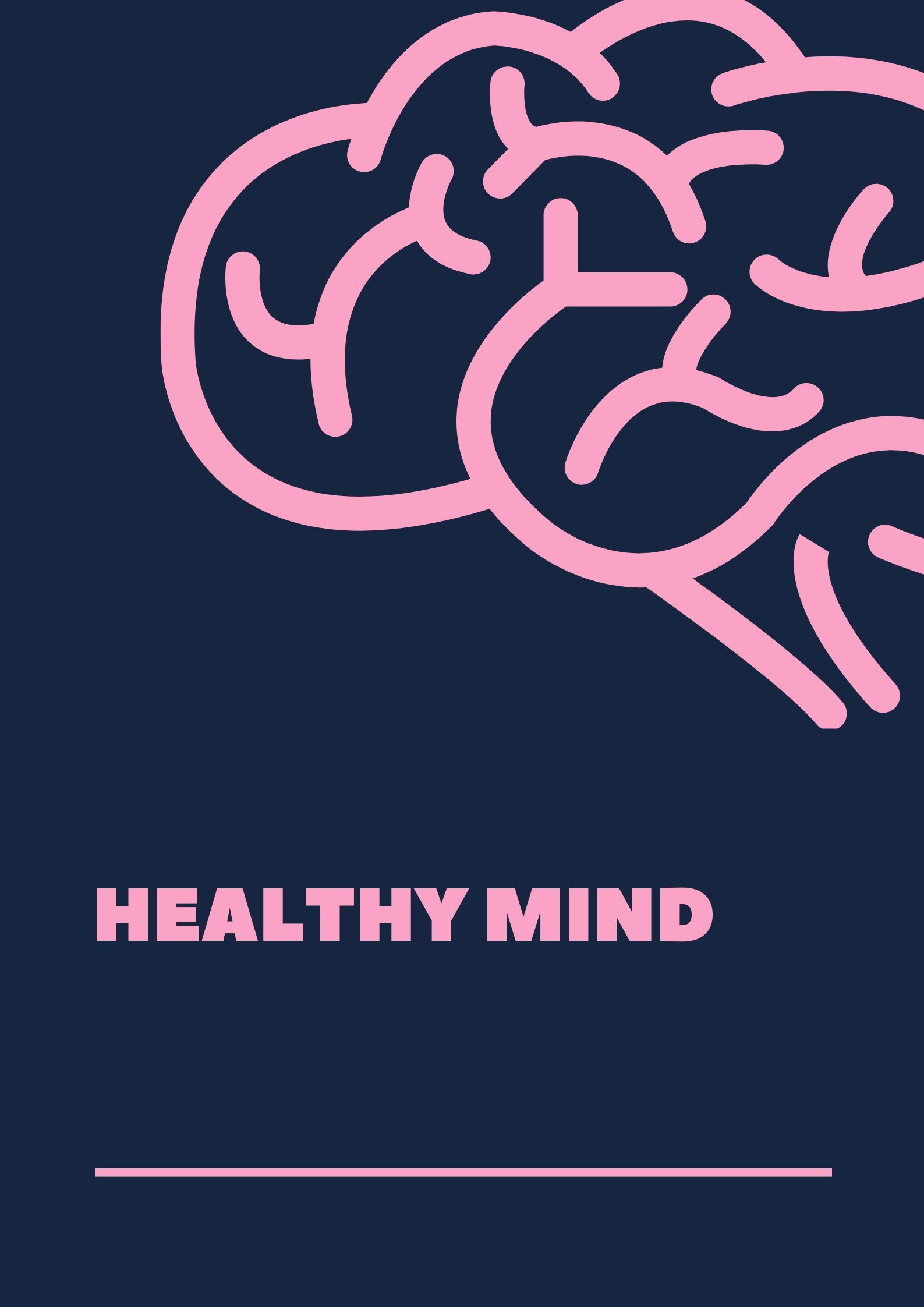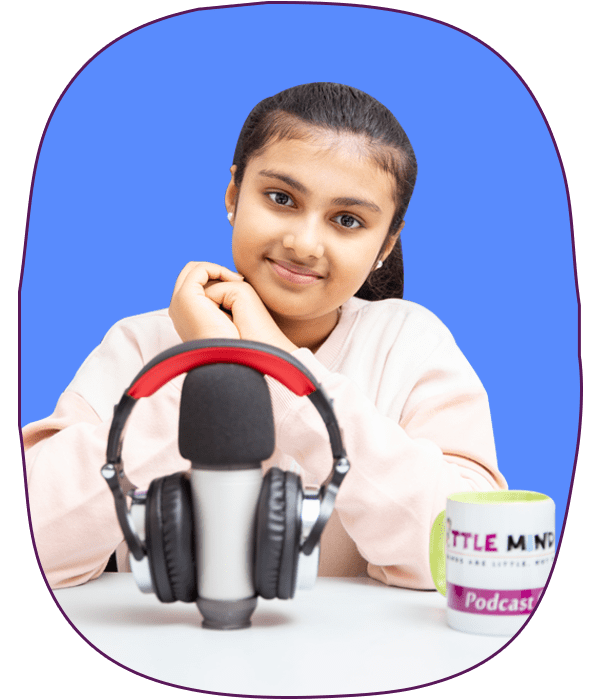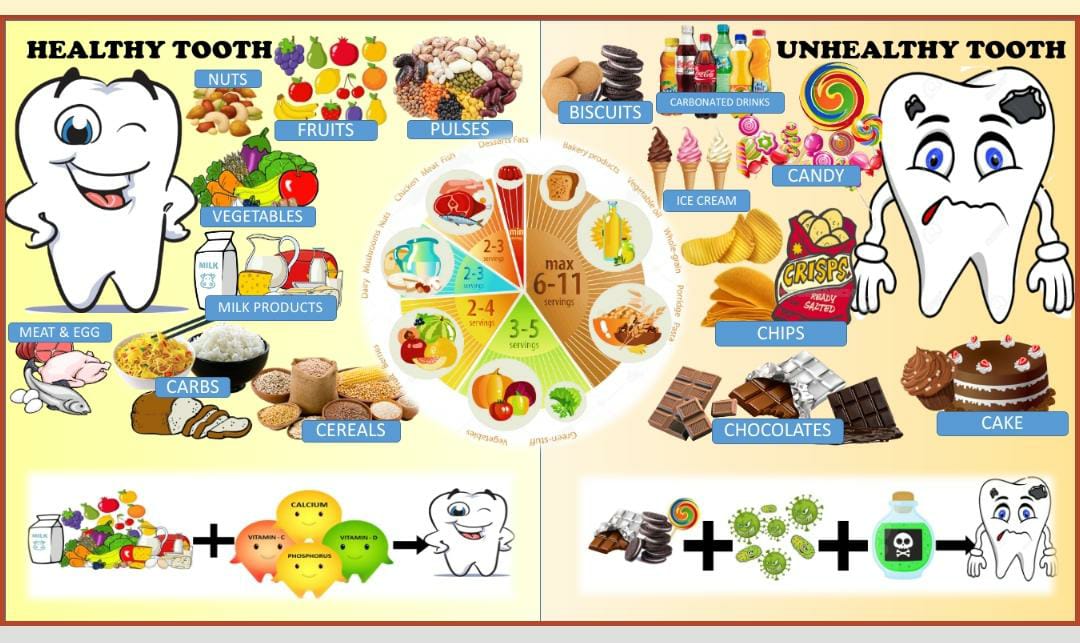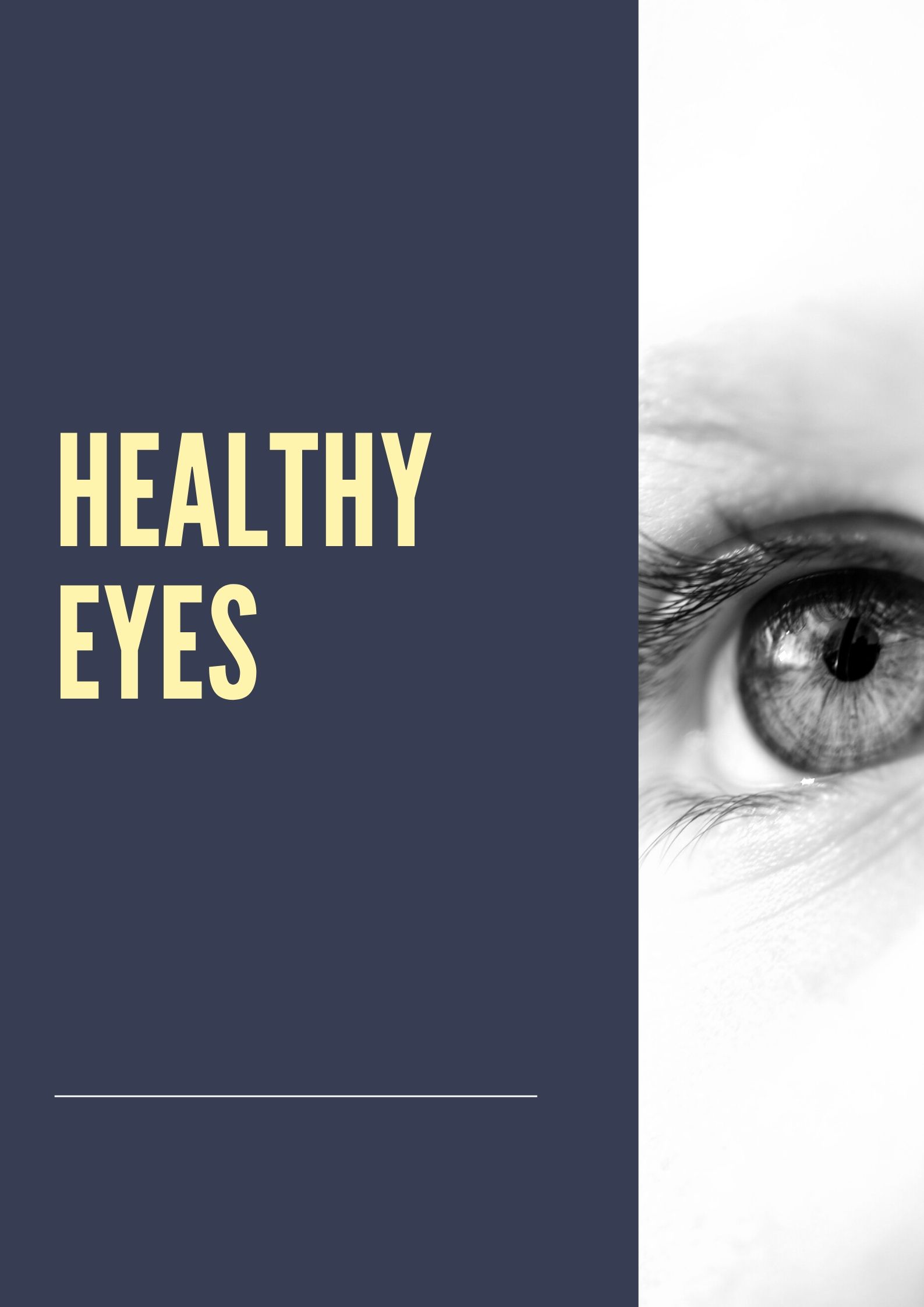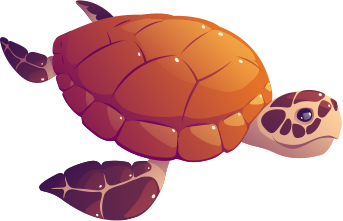Healthy Mind
Transcripts
Episode 009:
Interview 3: Healthy Mind
[0.01] Background Music
[0.09] Siyona: Hello my little friends. Hope you are all doing well. Welcome to my podcast Little Mind Chats. Minds are little, not our thoughts. As part of our health series, today we will explore a lot more about mental health and well-being. Mental health, mental well-being? What are you talking about? To answer these exact questions and a lot more related ones, today we have with us a lovely and brilliant doctor and psychiatrist who specializes in mental health, Dr. Divya Ganesh Nallur. She has 19 years of experience in psychiatry. Wow, that simply amazes me! She has an MSc (Masters in Science) in the field of psychiatry from Cardiff University. Not Just that, she is even a member of Royal college of psychiatrists in UK (United Kingdom). Yes, you are absolutely right. She is the expert in answering these questions for us. Hello Dr. Divya, welcome to my show.
[1.21] Dr. Divya: Hi, how are you?
[1.24] Siyona: I’m doing very well. Thank you. I’m so excited to speak to you today. My first question is, “What is mental health really? Is it important for kids to maintain good mental health?”.
[1.40] Dr. Divya: Yeah. Mental health is really not just the absence of mental illness. Just like your body can get ill, so can your mind. Right? So, your mind can sometimes get very unwell. So, mental health can be considered as absence of illness. Actually, mental wellness is more than just absence of illness. Isn’t it? So, you may not be unwell physically, but you may be weak or your body may just not be functioning properly. In the same way, your mind may not necessarily be ill all the time. But you may be tired, exhausted or just angry or upset. So, mental health is the absence of any emotional disturbance such that you can do your own activities. So, you can study or you can talk to people or you can play a game without any trouble. It’s actually a state of mind where you can function completely well. Do you understand that?
[2.45] Siyona: Oh. So that makes a lot better to understand. “But what psychological effect does Covid-19 have on kids? Can you please advise us on how to cope better?”.
[2.49] Dr. Divya: So covid is common hit that entire world quite suddenly. Isn’t it? And all of your schools have stopped, and you know you are not meeting your friends, you are not allowed to go into your play areas. So that can have significant psychological impact on kids. Well, some kids may really enjoy it actually. Because they don’t have to go to school. So, they will be quite happy not going to school. Yeah? But others just might feel quite sad because they are not meeting friends, there is nothing to do at home, they can get bored. And other sensitive children may also be extremely anxious. Because, we hear a lot on the television about how dangerous covid is and how lots of people can die because of it. Well, children don’t understand it completely. They may get very anxious. They can start getting scared. “What will happen to me? what will happen to my parents?”. So, if you do have concerns, if children do worry about these things, you should really talk to your parents first. Because, it’s not such a big deal. Covid is like any other illness. The fact that it is a pandemic is because it’s spreading too quickly. Yeah? The kids like you are usually quite strong. We have seen that covid does not affect kids too significantly. It effects older people more. You know if you are weaker, if you have some illness maybe it effects more. So, kids don’t have a lot to worry about. But if you are worrying about corona virus or covid you really need to talk to your parents. And if parents can’t help you then you need to see a doctor.
[4.35] Siyona: And I’m sure we are smart enough to cope with this better. “why do they say reading books and learning new things is good for us?” I mean, what if we don’t do that. Would I be less intelligent?
[4.52] Dr. Divya: No, intelligent you are born with really. But how this reading books help? You take a guess how do you think reading a book helps you?
[5.03] Siyona: Well, to me reading books helps me understand more about the books concept and helps me learn more facts and another thing is I learn a lot of new words in that. By reading books.
[5.24] Dr. Divya: Correct. You would improve your language and you may read things that you don’t know about. Yeah. You may read things about, “I don’t know about how the earth works or how it’s rotating around the sun. Or about corona virus. There is so much information in the world that the more books you read, the more knowledge you gain. It doesn’t make you more intelligent, but it makes you more informed. So that you know a little bit about everything. It’s very important that you know things about, you know what’s happening in your world. Different concepts about things, what’s healthy to eat, what’s not healthy to eat, and how do you speak, what languages you can learn. So, there’s so much knowledge. If you don’t read books, it’s going to be very heard. If you just rely on someone teaching you, like going to a class you are not going to get enough information by the time you become an adult. If you are 8, you just have 10 more years before you become an adult. And there is an awful lot of information out there. Yeah? To learn it all, you need to be quite a rigorous reader.
[6.29] Siyona: Oh my gosh! I didn’t realise that. So that may be why, my parents insist on me to read more books. But “why do we always feel like spending time on fun things, rather than reading or learning? “. We know reading and learning is good for us. But it gets so tricky to sit and do it. “Is there any trick to help us do the right thing?”.
[6.56] Dr. Divya: Just make sure that you don’t equate boredom with studies. A lot of kids do this. Isn’t it? They think only playing is fun. What if we change how we think and we start thinking reading is fun? Then it won’t be so tricky to sit down and read. The problem is a lot of kids start thinking reading is boring and writing is boring and that continues to grow in their head. So, it’s important thing to make sure that studying, reading, writing whatever you do, you are having fun. Because you are actually learning a lot. Isn’t it? And making sure that you enjoy that learning is very critical. So, if you are finding it difficult to focus. Say you are sitting and doing your homework and it’s very hard to focus because you want to see a cartoon or you want to go away and play something on your iPad. Then the best thing to do is, to promise yourself a schedule. You know what a schedule is? Like a timetable. Yeah? So, you have got specific times to sit down and read and then you have specific times to go and play. So, you don’t feel like you are always studying. So, you can have things to do which are fun and then you have to promise to yourself after you finish having fun, you will come and do the work that’s needed. So, having the schedule or a timetable is very useful to focus on what you need to do. Listen, it’s just not about studies. If you think about it, as a doctor, I have hundreds of things to do every day. Right? And most of those things are pretty boring to do. I don’t feel like doing most of those things. But then, there is someone who puts a schedule for me. You know they will say see this patient number 1 at 9’o clock. See patient number 2 at 10’o clock and then, you have a meeting to attend at 10.30. Someone has put a schedule. And then they make sure they give me a break. They give me 15minutes tea break or a lunch break at 1’o clock. Yeah? So, they make sure I have enough time to rest and we quirked it. And when I come back home, I do things that I like. Like playing with my son who is just about the same age as you. So, it’s important to have a schedule. And I’ll keep the schedule. Then life becomes very easy.
[9.23] Siyona: Yeah. once my mom said “come let’s write the schedule”, but somehow, I escaped by doing like I’m not concentrating on whatever my mom is telling me.
[9.37] Dr. Divya: [laughs]. Well, that’s ok to be a kid sometimes. You don’t have to be as rigid as adults. It’s ok to have more fun than adults.
[9.46] Siyona: “Is intelligence equivalent to how agitated we are?”
[9.51] Dr. Divya: Well, a lot of children, a lot of parents get bog down by how intelligent my child is. Or how intelligent I am. But intelligence is a very funny concept. Children can be intelligent in various things. There is not one kind of intelligence that we know. So, some children may have extra ordinary memory and they can remember everything. Some children may be super-duper good at maths and some children may be really talented in music. And other children, may be someone like you, may be so good at social skills that they can start their own podcast and start interviewing doctors at the age of 8.
[10.32] Siyona: [chuckles]
[10.33] Dr. Divya: Hhmm. So, intelligence is very varied. Yeah. Intelligence can be measured in different ways. So that technically what they say intelligence or IQ is about how quickly you can learn things, how quickly you can do things, how much memory you have. It’s kind of a little outdated now. Because we see kids that are smart in different ways. So, there are different kinds of intelligence. Not just studying kind of intelligence.
[11.05] Siyona: But my mom says that, “to be intelligent, you have to study”.
[11.11] Dr. Divya: What she says is also right. Because you are a smart girl anyway. But you have to get some degrees to back up behind your name, for everyone to know that you are smart. And to get those degrees you need to study.
[11.25] Siyona: Yeah.
[11.26] Dr. Divya: No one is going to give you degree just to talk. “Are they?”
[11.29] Siyona: No, they won’t.
[11.31] Dr. Divya: No. So, I am sure you can do both.
[11.35] Siyona: “What is learning disability?” I’ve heard children are shamed because of this. What ‘s your advice on how “we” as their friends can help them?
[11.45] Dr. Divya: Do you know anyone who has a learning disability?
[11.48] Siyona: Yeah. I know three kids with it.
[11.52] Dr. Divya: Some children’s brains may not develop completely. So, when they are growing up, they may not have grown their little finger. Just in the same way, some parts of their brain may not have grown. You may be fast enough to learn what is 2+2. But the child with the learning disability may not have the ability to learn. Children may have learning difficulties in various things. So, some children may just not be able to do numbers. Other children may just not be good with words or you know alphabets. Other children may have very poor memory. But the bottom line is these children’s brains are not functioning as well as yours’ s is. So instead of teasing these children, so say they can’t talk properly or they can’t do math properly or they get very low scores in their exams. Yeah? If they are in your class and they get very low scores in the tests, it’s very important not to tease them. Because it can be very hurtful. Isn’t it? So, if someone has a broken arm, would we go around teasing them saying, “yay yay yay yay you have a broken arm”, we wouldn’t do that. That’s mean. In the same way, if someone has a learning difficulty, which is little bit like a broken mind, we wouldn’t tease them in any way. We would try to assist them. So, children should try and support other children. These are special children. They have special needs. They need special ways of teaching. They need more time to learn the same things that you can learn in a few minutes. So, you support them. So, if they can’t write, you help them write. If they can’t talk, you help them talk. So, being supportive of children with special needs is very important.
[13.37] Siyona: Yeah. I agree. “Some children get very upset due to bullying episodes. How can they help themselves come out of it? What’s your advice to them?”
[13.49] Dr. Divya: Yeah. Bullying is terrible. Isn’t it? Bullying is teasing children. So, when some children tease other children or they snatch away their things. So, they hit them or they are being naughty to them in some other way. Obviously, if someone is nasty to me, I am not going to like it very much. And if they are doing it repeatedly, I may feel pain or I may feel hurt. So, children are the same. So, if there are bullies and they are bullying a child, and the child can get very hurt. So, hurt that they can lose their confidence and they may not grow up properly. Like you know grow up like a big adult. It might get effected. So, it’s very important that if you see anyone bullying anyone or if you get bullied, any child gets bullied, it’s very important that you go speak to an adult.
[14.43] Siyona: Yeah.
[14.44] Dr. Divya: Yeah. Either to your teacher or to your parents so that the others can make sure that the children are not hurting each other in any way. Any time you feel pain, hurt or you feel like crying, you be open and honest with your teachers, you be open and honest with your parents and make sure you talk to them well so that they can help you in what ever way. There is one rule in our house and I’m sure your mom follows this rule as well. There can be no secrets between mom and the child. Everything has to be told till you become an adult. No matter who tells you, keep this a secret. So, say an adult is teasing you and then they say “don’t tell anyone, otherwise I will hurt you”. Even then you need to tell mom. There is no danger in telling mom anything. It doesn’t matter how bad it is, you have to tell mummy and daddy. Be honest with them and tell them everything what’s happening in your life so that we can protect you and we can help you.
[15.50] Siyona: Yeah. That’s why mom says “tell me everything. Not even one spec should be missed out.
[15.56] Dr. Divya: Correct. A lot of children don’t even know what bullying is sometimes. So, they may not realize that people are bullying them or even the bullies sometimes because they are children as well. Sometimes, they don’t know that they are bullying others. So, it’s very important that teachers deal with it properly and tell the bully, what is bullying and how it is harmful to other people, educate them and ask them not to do it and also protect younger children like yourself from anyone who is doing it.
[16.27] Siyona: My next question is, “why is it important that we only watch PG movies?” can you explain what damaging effects violent or horror movies can have on our children?”
[16.38] Dr. Divya: “Have you ever watched a horror movie?”
[16.41] Siyona: Yes.
[16.42] Dr. Divya: “Which one?”
[16.44] Siyona: I don’t remember the name.
[16.46] Dr. Divya: okay. “How did you feel after watching that movie?”
[16.49] Siyona: Dread.
[16.50] Dr. Divya: Yeah. The problem with horror movies or violent movies is that it makes children scared. Children have little brains. Right? And they are not yet processing everything properly. So, to understand that, that’s just a movie, it’s never gonna happen in real life, that much knowledge is not yet accumulated in the brain. For adults, say we watch ghost movies or zombie movies we know that’s just tally. And our brain can switch on when we are watching the movie and switch it off when we are not watching. So, we are not going to get scared in the night thinking there are ghosts under our bed. Because our brain is fully developed. But if you watch violent or horror movies, you’re gonna be scared in the night. You are already scared when you are alone. You may not be able to sleep; you may not be able to do the things you want to do like may be go for a walk or going to school or be alone sometimes. You know if mommy says “go to your room and study”, you may not be able to do that because you are too scared to be alone. And if that fear continues, it can become a problem in about life. So, when the brain is still soft and small, we do not traumatize it. We do not give it any bad information. You just put it in nice, clean environment to make it very healthy and strong and not put any poison on to it. And all this violence and horror and negative things are all poisonous to the brain. And once the brain is fully developed, it can take anything. It can take horror, it can take violence, it can take anything. But till it’s fully grown, you do not damage it in any way. You make sure it’s in a very healthy environment, such that it grows be a very very healthy brain. That’s why it’s very important that you don’t watch anything that is not for your age. More than movies, they(children) download these games in their iPad or phones. Isn’t it? Which are not age appropriate. You can’t keep doing shooting games. Then your brain is only going to think that the only way to resolve conflicts, so if someone is about to be scary to me, I want to shoot him. That’s all the brain will learn. But in real life, you don’t shoot anyone. Do we?
[19.06] Siyona: No.
[19.07] Dr. Divya: No. We just don’t talk to them if they are being naughty or if they are being hurtful. So, if you’re constantly playing shooting games, your brain’s gonna get violent like that. So, it’s very important, not just movies but even the games you select are age appropriate.
[19.22] Siyona: Yeah. My teacher over there in UK, kept telling the boys when we were still 6-7years old in year 2, not to download fortnight and play. But they just kept on playing it.
[19.37] Dr. Divya: Yeah. Not good at all with the brain. It’s gonna damage their brains.
[19.43] Siyona: Yeah, that’s why my teacher told them not to play all that stuff. But then they just went around teasing the teacher stuff.
[19.51] Dr. Divya: That’s very naughty.
[19.52] Siyona: “Why does my generation get bored too quickly?” We are so dependent on gadgets like mobiles and computers to keep ourselves amused.
[20.01] Dr. Divya: Well. A little bit of that is our problem. Our mistake really. You know the adult in your life? Our mistake. Say, you were a little baby. You know like when I remember my son being a little baby and then I was really busy doing lots of things. You know working and doing things at home. So, if he was bored, I just give him the iPad. Because it was convenient. If I gave the iPad, I could do a lot of my jobs easily. Because he was occupied. And you made a habit of it. Right? So, the problem was (say) when I was growing, if I got bored, I had to find a way to occupy myself. I would find a stick or a little ball or a stone and you know just throw it around or make a toy out of it and play myself. I wouldn’t disturb my mom because she never taught me that it is very important to keep your brain focused. What she taught me was that I needed to beat my own boredom. If I am bored, I fix it. But for you guys we have always fixed it. Just to make sure you don’t get bored we have given you lots of gadgets, yeah? A lot of people like me (a lot of doctors like me) do suggest that do not to introduce gadgets like phones or iPads to kids too young. Don’t give it to them at all for at least the first two to three years so that they will learn how to get bored. A lot of a time when my son says “I’m bored”, my usual answer is “it’s very good to be bored”. I want you to find something to kill your boredom. You’ll be innovative. That’s how scientists evolve. You think of something innovative to kill your boredom. If you don’t think, then you are always reliant on an iPad or a phone, that’s not going to make your brain think. You are not going to be innovative. So, being bored is very important. That’s when the brain thinks. I’ve given an idea to your mom. Haven’t I? The next time you say you’re bored; mum has to say “Well done. It’s very good to be bored”. Now, think of something to entertain yourself without touching the iPad. Without touching the phone. Without touching the television. Little brains like yours’ s are super powerful. They can think about the most amazing ideas. You need to let it work. So, you need to make sure that a little bit of time is spent in being physically exertive. Physical exercise is very important. Jumping around, riding a bicycle, playing badminton, whatever.
[22.41] Siyona: Yeah. [chuckles] “Why do kids quickly feel jealous when they see their friends having something they don’t?”
[22.49] Dr. Divya: Do you think it’s just kids who feel jealous or do you think adults do too?
[22.54] Siyona: Just kids.
[22.56] Dr. Divya: I think you are a bit wrong. Adults might feel more jealous than kids sometimes.
[23.02] Siyona: Really?
[23.03] Dr. Divya: Yeah. Really. [laughs] There are some adults who might feel very jealous about things someone has a better car or a better house or better kids. So, I may be very jealous about your mom because she has a beautiful daughter like you and I don’t. [both laugh] So jealousy is a normal emotion. Yeah. All humans just like we feel happiness, sadness. All humans feel happiness. All humans feel sadness. In the same way, jealousy is also an emotion that is normal for every human being. As a child’ you do not know how to control it. Just like you don’t know how to control anger. Just like you don’t know how to control sadness. When a child gets very sad, they are just crying all the time. When an adult gets sad, we don’t sit and cry or most of the times we don’t. We try and deal with the problem and when we feel jealous, we become aware that we are jealous and we move on. Say we do not allow ourselves to be in that jealous mode. But kids, they are still learning. They just tell us, “I want that one too” and you know they make a fuss about others having things. Because they are just open and they don’t know how to control the jealousy and it’s I think our job as parents to make you understand that jealousy is okay as long as you don’t act on it. It’s okay to feel a bit jealous inside. But then it can’t be a good emotion. Like just now I am thinking “oh wouldn’t it have been really nice if had a daughter like you as well”. That is jealousy actually. But then I’m not gonna do anything about it. I’m just gonna feel nice about it. Because I’ve at least got the chance to talk to you. So, it’s important that you know that jealousy is not a very good feeling to have. So, it’s important every time you feel jealous you go talk to your mom and say “actually mom I am feeling very jealous that she got the better piece of cake and not me”. And then mom can calm you down and say “don’t worry the next time you’re gonna get the bigger piece”. Or whatever she says, and you calm yourself down and then you learn every time you get jealous, every time you control your jealousy. You get a little bit better at controlling your jealousy. And by the time you are an adult, you are an expert at controlling jealousy.
[25.23] Siyona: I see. Thank you so much Dr. Divya for answering so many of my questions.
[25.31] Dr. Divya: You’re welcome sweetheart. It was a pleasure talking to you.
[25.35] Siyona: Thank you. I really hope to talk to you again soon.
[25.39] Dr. Divya: yeah. Me too.
[25.42] Siyona: So, friends today we’ve learnt so many things from Dr. Divya. Like the importance of having a good routine or a time table. It’s important to watch age appropriate movies, how we could identify and get over bullying and so many other things important to us. I’m sure this will help a lot of us. Now, to the health question of this week, “what would you do to keep yourself busy even if you are not given a gadget?”. Please do send me your thoughts by email on siyona@littlemindchats.com. Or on the get involved of my website littlemindchats.com. you could WhatsApp me on +916366305959. Before I could say bye, I would like to pay my respect to the numerous brave soldiers who lost their lives last week at the India-china border. I salute them. Meet you with a news episode next week. Thanks, a tonne for listening. Bye.
Other Interesting Episodes
07 Jun-20. by Siyona
Healthy Teeth
05 Jul-20. by Siyona
Healthy Eyes
No Comment Found..

